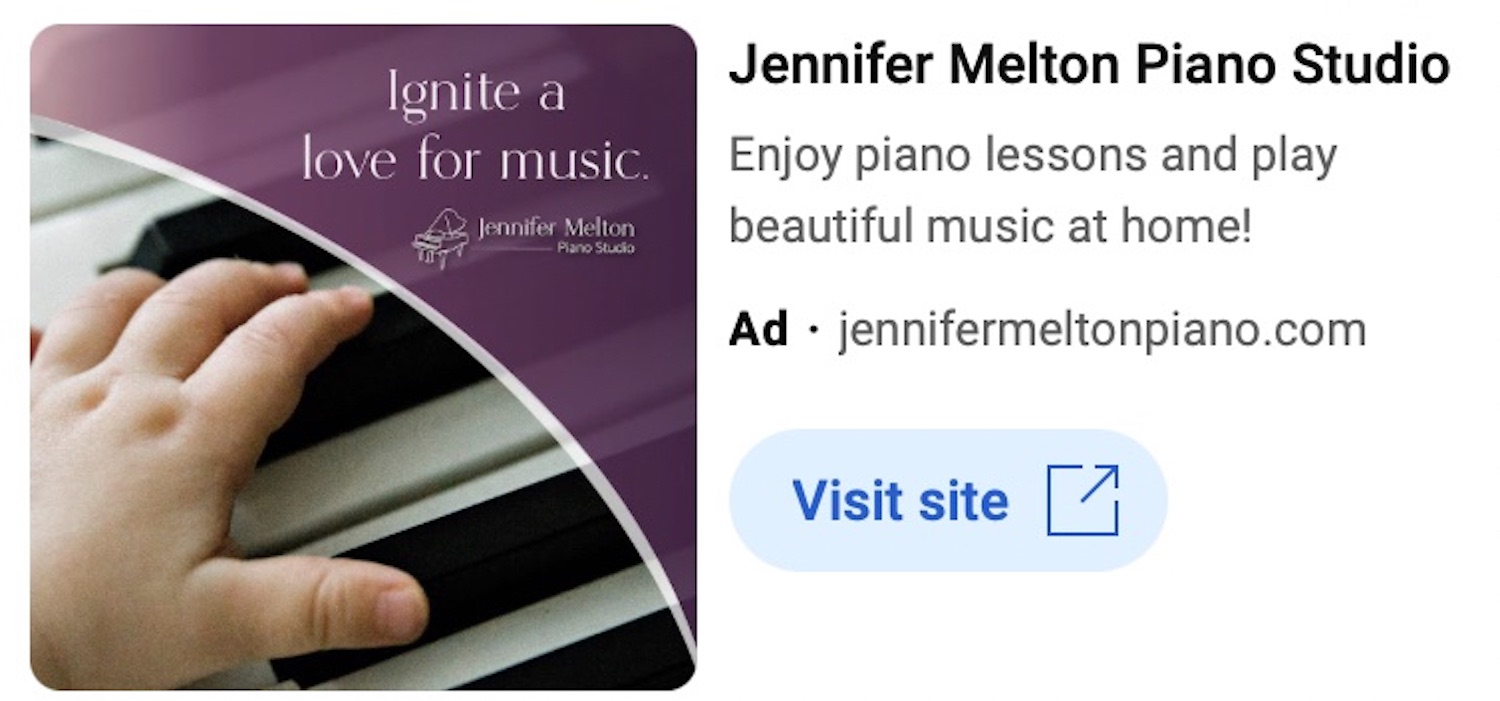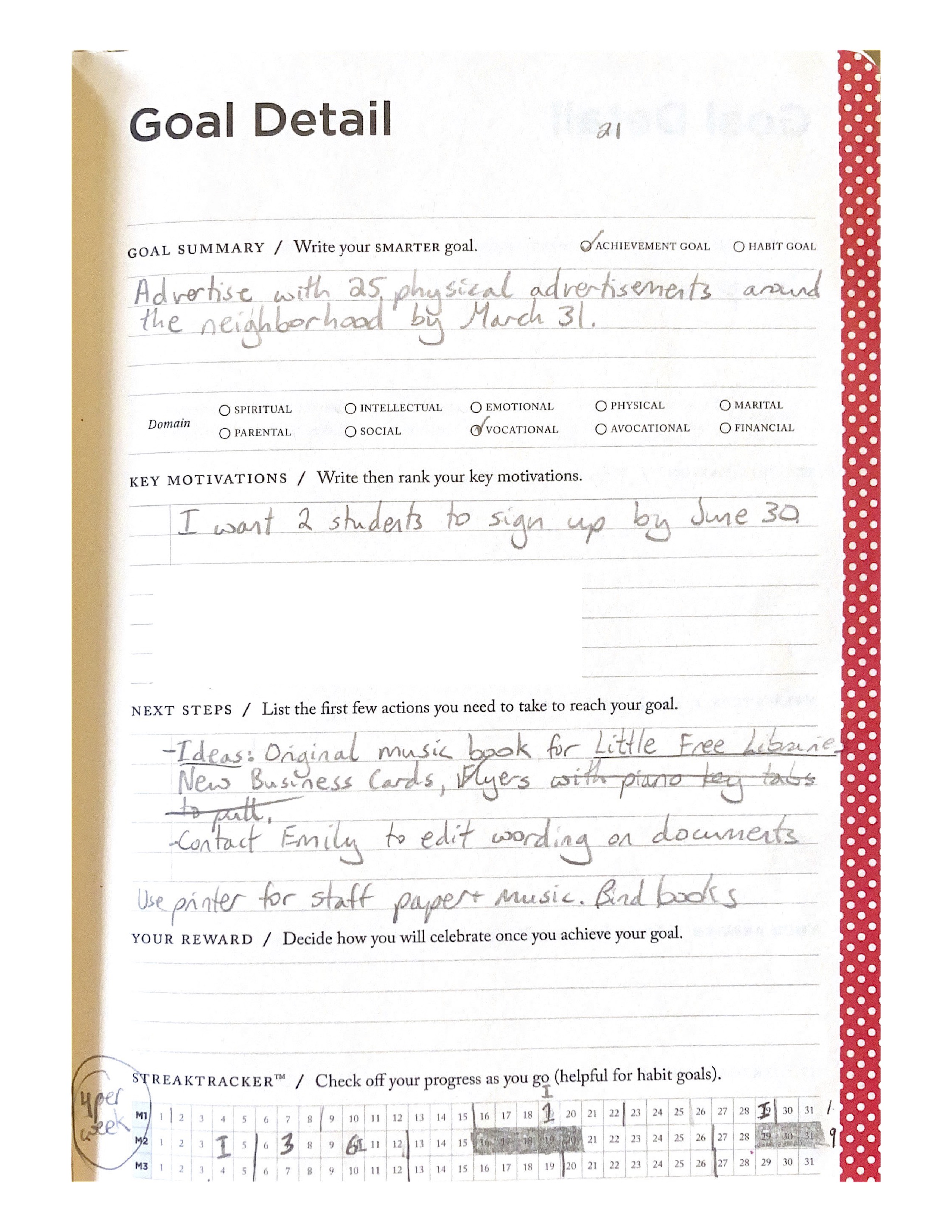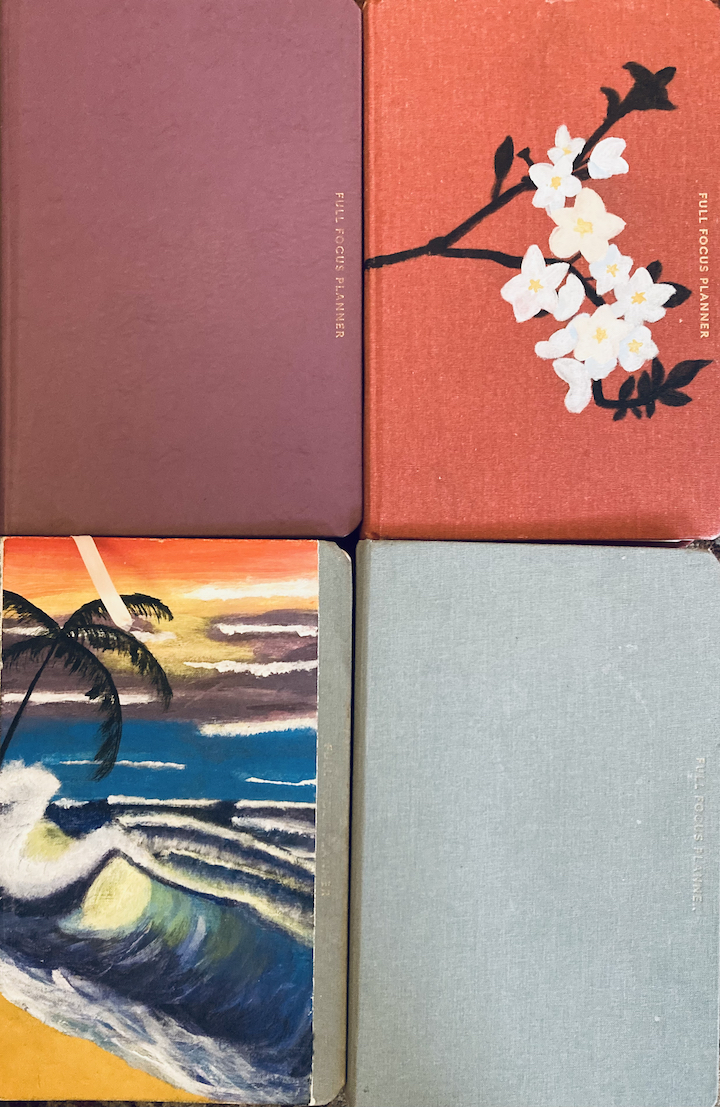🥅 Vocational Goal Update #2
How has my goal to put out 25 physical advertisements for my piano studio gone?
I felt very discouraged by the lack of responses because this campaign was ultimately very expensive and I would need three new students to break even from this loss. I have a feeling that maybe people were expecting a video, but the ad was merely a picture. I know my homemade website also loads slowly and wasn't very engaging at the time.








